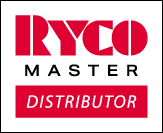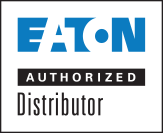How Critical is Fleet Vehicle Maintenance?
If you operate a fleet of vehicles, whether heavy equipment, trucks, or passenger cars, fleet vehicle maintenance is critical.
Fleet management ensures your assets are in tip-top shape and ready to perform when needed. It helps you reduce costs and avoid delays you’ll face should you have to deal with unexpected breakdowns and repairs.
Proactive fleet management also extends the lifespan of your vehicles, as if your fleet is well-maintained, you won’t have to replace equipment as often.
Fleet Maintenance Basics
Fleet management helps you run lean. You can focus more attention on your business as you won’t constantly be in break-fix mode. And let’s face it—any vehicle out of commission is going to cost you money. Your team will need to scramble for workarounds, you’ll have to allocate funds that could have been better spent on other things, and your customers won’t be too happy either, especially if poor fleet maintenance causes them delays.
- Knowing your fleet is the first step to a proactive fleet maintenance program.
You should:
- Know how often service is required and plan in advance.
- Know what parts are most likely to break or wear out.
- Plan some downtime for each vehicle to perform planned maintenance and upkeep.
- Have spare parts on hand so you can perform the work quickly.
- Know the predicted lifespan of the vehicle so you can get ahead of a breakdown or failure.
2. Avoid downtime with advance planning.
Having an advance maintenance schedule helps you budget accordingly. You might also think about replacing vehicles when they get close to their end of life as breakdowns will begin to happen more frequently, and maintenance costs will be higher. At some point, a newer vehicle might serve you better from just about every standpoint.
- Perform regular inspections.
- Manage your inventory well.
- Staff according to planned maintenance needs.
- Automate documentation with software to create high visibility.
3. Ensuring compliance is at the heart of all fleet management processes—or it should be.
Compliance ensures you meet your industry’s regulatory and safety standards, but that’s just the legal end of things.
A compliant fleet ensures your employees are safe doing their jobs, meaning fewer injuries, less downtime, and risk mitigation all around. You certainly wouldn’t want a driver taking a truck out on the road with faulty brakes or worn tires as you would be putting their livelihood and your solvency at risk.
Plus, commercial vehicles are often subject to spot checks. If this happens and a safety issue comes to light, you risk having your entire fleet taken off the road—and you can imagine the domino effect that would cause.
But compliance is also about making sure your drivers and operators are appropriately trained and have the proper licenses and certifications. Fleet management is a lot easier when all stakeholders are engaged in the process.
The benefits of fleet management far outweigh the alternative. If you want to reduce operating costs and downtime and improve employee safety and customer satisfaction, there is no better place to start.





